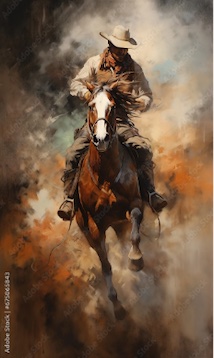
Inherit the Wind (circa 1960) is a dramatization of the famous Scopes Monkey Trial of 1925, when John Scopes, a high school teacher, was charged with violating the Butler Act by teaching Charles Darwin's theory of evolution. The prosecution's argument rested on an overzealous interpretation of the Bible that allowed no debate or discussion from those they viewed as outside influences. The defense argued that the right to think was on trial. The Butler Act, passed in 1925, prohibited teaching any theory that denied the biblical account of human creation. The American Civil Liberties Union (ACLU) sought a test case to challenge the law, and Scopes, a substitute teacher, agreed to be prosecuted after teaching evolution from a textbook.
The prosecution was led by William Jennings Bryan, a prominent politician and devout Christian, who advocated for a literal interpretation of the Bible. The defense was represented by Clarence Darrow, a famous agnostic lawyer, who aimed to defend academic freedom and the right to teach science. Scopes was found guilty and fined $100, though the verdict was later overturned on a technicality. The trial had no immediate legal impact but highlighted the cultural clash between modern science and religious traditionalism. It symbolized the broader debate over science, religion, and education in America. It drew massive media attention, with H.L. Mencken's coverage mocking the anti-evolution stance. It also inspired later challenges to similar laws, though the Butler Act remained in place until 1967.
The film's themes were exaggerated for dramatic effect, especially the hysterical fanaticism of the townspeople and their spiritual leaders. Of course, this was not what happened during the actual trial, but the fact that the real-life trial was moved outside because of the summer heat contributed to the carnival atmosphere generated by the press. The trial became a national spectacle, pitting science against religious fundamentalism. However, it can be argued that the seriousness of the debate was undermined by the mocking voices of Western civilization drifting towards an increasingly more hedonistic lifestyle and worldview. By the 1960s, the Bible was beginning to be banned from schools all over the United States of America. One might deduce that we jumped from the frying pan into the fire—pun intended.
The trial pitted ignorance and superstition against facts and science. But the reality is that ignorance and superstition can only be vanquished by reason and faith. Facts today, often become tomorrow's fiction, just as today's fiction often becomes tomorrow's fact when science and religion catch up with reality. Some of the greatest minds in the history of science, like Galileo, Newton, and many others, were inspired by their faith to investigate the laws of nature laid down by nature's God. They understood that for there to be laws, there must be a law maker. Human nature drives us to investigate but spiritual revelation guides us along the way. Without it we are lost in a chaotic world of might makes right. We become nothing but smart monkeys dressed up in the trappings of civilization, only a few generations away from reverting to the law of the jungle.
Reason and faith are the firm ground that support this nation's founding. No nation could have won the great wars of the early and middle years of this Republic without a firm foundation in spiritual faith. It is only in the last half century that we have gone astray by abandoning our faith and breaking our covenant with God.
At the end of the movie, Spencer Tracy, playing the role of defense attorney, holds the Bible in his right hand and Darwin's book on evolution in his left as if to weigh them against each other. Finding them balanced, like the scales of justice pictured at the beginning of the film, he shrugs and with a weary smile, puts them together, one to the other. A fitting implication that after being measured and weighed there should be no conflict between science and religion. One deals with the how and the other with the why, creating two levels of truth, one temporal and the other eternal, with each one complementing the other.
The film's title, drawn from Proverbs 11:29 — "He that troubleth his own house shall inherit the wind: and the fool shall be servant to the wise of heart," underscores the idea that rigid dogma, whether religious or secular, leads to intellectual and spiritual ruin, while open-mindedness fosters wisdom.









